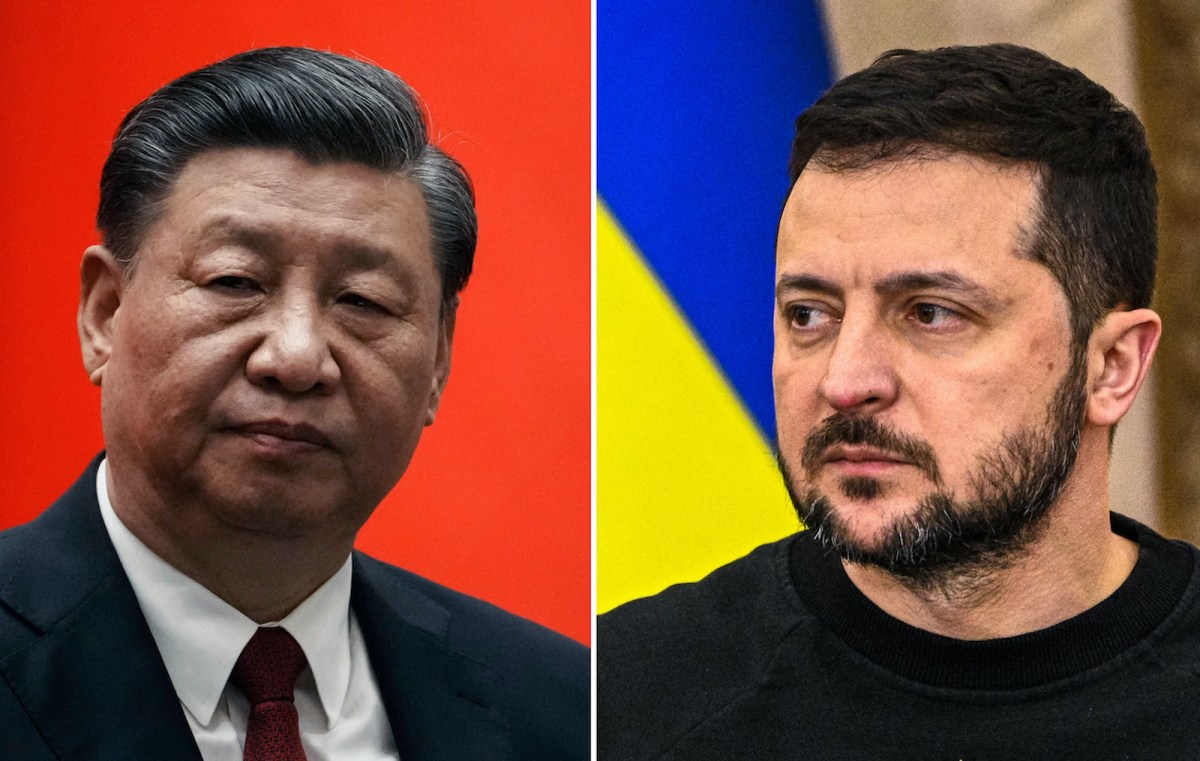Global Courant 2023-05-29 11:49:21
After a year of diplomatic inaction on the war in Ukraine, the Chinese government has made demonstrable efforts to come across as a peacemaker. But while these moves indicate a change in its behavior, there is little reason to expect China’s efforts to end the war.
from China 12 point “peace plan” and directly from Chinese President Xi Jinping phone call to Ukrainian President Volodymyr Zelensky on April 26, 2023, though met with skepticism and criticism in the West, led the international community to believe that China might be able to move the needle far enough to bring the war in Ukraine closer to a resolution or at least some kind of peace process.
But neither Russia nor Ukraine is ready to negotiate and make concessions. While the conflict is mutually damaging, there is no apparent battlefield stalemate or strategic stalemate that would necessitate immediate negotiations. Neither Ukraine nor Russia is exhausted enough to enter into negotiations, with both sides making an effort for a long time.
Beijing’s relative success in brokering a Saudi-Iran Agreement should not be extrapolated to the war in Ukraine. In the case of Saudi Iran, a predetermined dialogue framework aided China’s belated involvement. Iraq and Oman had done much of the substantive work before Beijing intervened.
Most importantly, given the power vacuum in the region, both Iran and Saudi Arabia were willing to come to terms with each other.
This is not the case in Ukraine, where the incompatibility of Kiev’s and Moscow’s demands and the lack of a strong “give peace a chance” camp in Europe make protracted war the most likely scenario. If China’s mediation efforts are driven by a desire to elevate its status, there is a risk for Beijing that failure to achieve a successful outcome will damage its credibility.
The Moscow-Kiev conflict has become an acute manifestation of global rivalry between great powers, an epicenter of the struggle for influence between Russia and the West, rooted in long-standing systemic trends.
The stalemate between Russia and the West in the post-Soviet space emerged long before the war in Ukraine. Shortly after the war between Russia and Georgia in August 2008, the former Russian president Dmitry Medvedev stated that Moscow had demarcated a “traditional sphere of Russian interests” to which the then US Vice President Joe Biden refuted“we will not recognize any nation that has a sphere of influence.”
Russia and the West ruled out any possibility of a positive scenario regarding Ukraine. This means that China should not mediate in a territorial dispute between Russia and Ukraine, but in an outright zero-sum confrontation between Russia and the West – a daunting task.
China’s own precarious position in the big power politics and deteriorating relations with the United States, exacerbated by Beijing’s commitment to reclaiming Taiwan, make Beijing an unlikely candidate to resolve tensions between Russia and the West. The crux of the problem is that Russia is China’s only major ally and that China will rely on Russia in the event of a confrontation with the United States.
Unlike the United States and its allies, China does not want Russia suffers a crushing defeat in Ukraine. Such a scenario would represent a triumph for the international order and global influence of the United States.
This would not only deal a blow to China’s aspirations for a new world order with “Chinese features” And “to dreambut also for the legitimacy of the Chinese Communist Party, especially from the point of view of unification with Taiwan. If Russia fails to confront the West, China will be the West’s next target.
In contrast, a protracted war or some form of Russian victory will erode the US-led international order, exposing its flaws and opening new avenues for China’s global rise. China will tread the tightrope of Ukrainian geopolitics very carefully, with unfulfillable “peace initiatives” that combine a Russia-friendly attitude with a desire to protect its own interests.
Given these considerations and China’s general knowledge of the conflict, China’s plans to mediate the conflict are questionable. China’s activities with regard to Ukraine appear to be dictated by Beijing’s broader foreign policy objectives.
By getting involved in the global “Ukraine project”, Beijing can form a coalition of like-minded developing countries with ambivalent views on the war in Ukraine, such as Brazil and South Africa.
China can not only strengthen its influence in the developing world, but also circumvent the uncompromisingly binary structural environment of “barbaric and authoritarian Russia versus the civilized and democratic West”.
By doing so, Beijing can increase foreign policy room for maneuver while undermining the unity and global prestige of the West.
Still, China’s “peace initiatives” should not be completely rejected, despite their limited ability to end the war in Ukraine.
While they may not create peace talks, they can facilitate “talks about talks” and talks about avoiding vertical escalation when the use of tactical nuclear weapons is no longer a distant risk but an imminent threat. Given the gravity of the situation in Ukraine, these possible outcomes make China’s recent moves a worthy undertaking.
Alexander Korolev is Senior Lecturer in Politics and International Relations at the University of New South Wales, Sydney.
This article was originally published by East Asia Forum and has been republished under a Creative Commons license.
Similar:
Loading…








